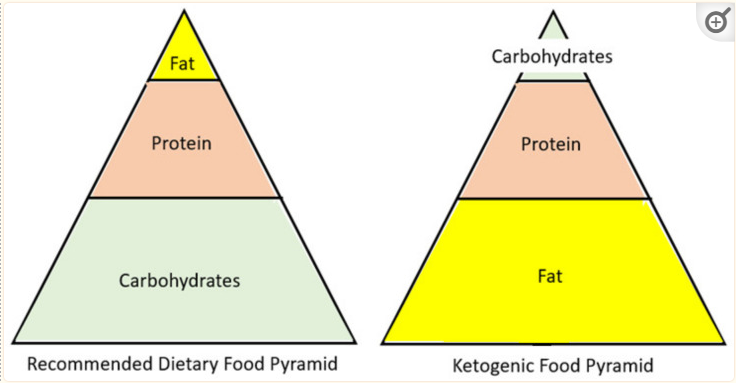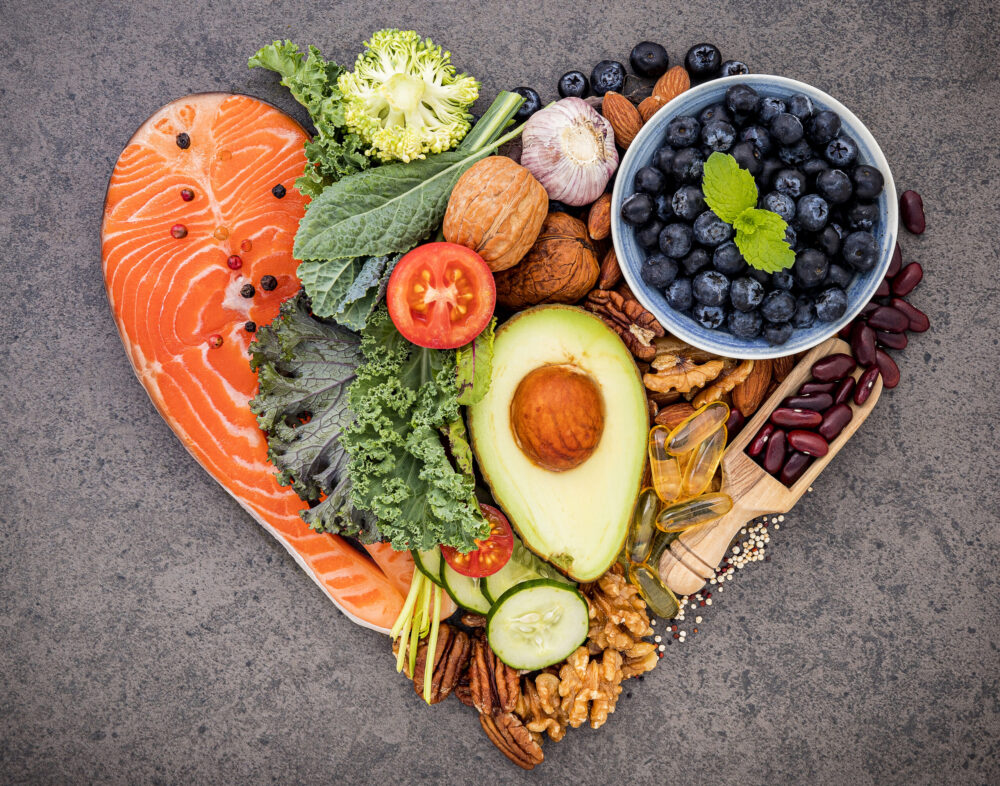What is a Keto Diet?
The keto diet, is a popular weight loss and overall health-promoting eating plan, relying on the body entering a metabolic state called ketosis. By stimulating ketosis through low carbohydrate intake and high fat consumption, the body switches its energy source from glucose to fat. This dietary approach has numerous benefits, including potential weight loss, improved mental clarity, and increased energy levels.
The Keto diet primarily includes healthy fats, such as avocados and olive oil, moderate amounts of protein, like fish, chicken, dairy and minimal carbohydrates. The elimination of carb-rich foods such as grains and sugary treats can be a significant dietary shift. Understanding which foods to eat within the keto framework is crucial for enjoying the benefits and avoiding pitfalls associated with the regimen.
Understanding Keto Diet
The primary principle of the ketogenic diet is to significantly reduce the intake of carbohydrates and replace them with fat and moderate amounts of protein. When the body lacks carbohydrates, it begins to break down fat to produce ketone, which it then uses as an alternative fuel source. This metabolic state is called ketosis.
The general macro nutrient ratio for a ketogenic diet is:
- 70-80% fat
- 20-25% protein
- 5-10% carbohydrates

However, individual macro nutrient needs may vary depending on factors such as age, gender, and physical activity levels.
Keto Friendly Foods
In order to achieve ketosis, it is essential to consume low-carb foods that are also high in healthy fats. Some typical keto-friendly foods include:
- Meat and poultry (e.g., beef, chicken, turkey, and pork)
- Fish and seafood (e.g., salmon, mackerel, and tuna)
- High-fat dairy (e.g., cheese, butter, and full-fat Greek yogurt)
- Oils (e.g., coconut oil, olive oil, and avocado oil)
- Nuts and seeds (e.g., almonds, walnuts, and flaxseeds)
- Low-carb vegetables (e.g., spinach, broccoli, and cauliflower)
- Avocado and berries (blueberries, raspberries and strawberries)
It is also essential to ensure adequate fiber intake by consuming low-carb vegetables, nuts, and seeds, as a high-fat diet with insufficient fiber can lead to gastrointestinal issues such as constipation.
Ketogenic diets beneficial for a number of reasons, such as weight loss, improved blood sugar control, and increased mental clarity. However, there are also concerns about the long-term effects of a high-fat, low-carb diet on cardiovascular health and overall nutrient intake.
While the keto diet has shown promising results for some people, it is important to be knowledgeable about its principles, potential benefits, and risks before considering it as an option for weight loss or other health-related goals.
Benefits of Keto Diet

Weight Loss and Body Fat Reduction
One of the most well-known health benefits of the keto diet is its ability to support weight loss and body fat reduction. The ketogenic diet shifts the body’s primary fuel source from carbohydrates to fats by entering a state called ketosis. This process leads to an increased fat burning capacity, which may result in faster weight loss compared to other diet plans. Some people also experience reduced appetite and hunger, which can further contribute to weight loss efforts.
Impact on Blood Sugar and Insulin Levels
The keto diet can positively impact blood sugar and insulin levels, making it an attractive option for those with diabetes or insulin resistance. By significantly reducing carbohydrate intake, the keto diet helps maintain a more stable blood sugar level. This stabilization can improve insulin sensitivity, reduce the need for medications, and potentially lower the risk of diabetes-related complications. If you are diabetic considering the keto diet, please check with your health professional before jumping in!
Effects on Metabolism and Energy
Many individuals following a keto diet report increased energy levels and improved metabolism. By utilizing fat as the primary energy source, the body can maintain consistent energy production without relying on frequent carbohydrate intake.
Incorporating keto friendly foods such as avocados, nuts, seeds, and low-carb vegetables can help maintain a nutrient-dense, balanced diet while still adhering to the principles of the keto diet. This approach, combined with the potential benefits of weight loss, improved blood sugar regulation, and enhanced metabolism and energy, makes the keto diet an appealing option for many seeking to improve their overall health.
The Role of Blood Sugar in Cancer
A ketogenic diet can lower blood sugar levels. This may help reduce tumor growth and even starve cancer cells of energy. In all living cells, the long-term effect of this “starvation” may be that the cancer cells will grow more slowly, decrease in size, or possibly even die. As the National Library of Medicine states on this topic:

Potential Risks and Side Effects of Keto Diet
Short-Term Adverse Effects
The initial phase of the keto diet can be challenging for some due to what’s known as the keto flu. This is a group of symptoms that resemble the flu, such as headaches, fatigue, and mood swings. Another common short-term adverse effect is constipation. As the keto diet is low in carbohydrates and high in fats, it may lead to a decrease in fiber intake, causing bowel movement difficulties.
On a keto diet you can also experience a significant increase in cholesterol levels, particularly in the early stages of the diet. This is mainly due to the high intake of saturated fats, which can consequently lead to high blood pressure.
Long-Term Health Considerations
Prolonged adherence to a keto diet can have long-term health implications. For instance, the risk of heart disease may increase due to raised cholesterol levels and high blood pressure. On a keto diet, you may also encounter liver and kidney-related issues. High amounts of fats can put stress on the liver, and excessive protein consumption could lead to kidney stones.
Nutrient deficiencies are another concern associated with a keto diet. A long-term keto diet may involve inadequate intake of essential nutrients, such as vitamins, minerals, and fiber. This is mainly because many nutrient-dense foods are excluded from the keto diet due to their high carbohydrate content.
Wrap Up
One of the key advantages of the keto diet is the ability to tap into stored fat for energy. As carbohydrates are drastically reduced, the body shifts to breaking down fat, resulting in weight loss. However, it’s important to remember that some initial weight lost might be attributed to water weight rather than fat loss.
There are many benefits of keto diet, such as promoting fat loss, enhancing cognitive function, and increasing energy levels. It is achieved by consuming a diet high in healthy fats, moderate in proteins, and low in carbohydrates. Some common food choices on the keto diet include:
- Meat and poultry: beef, chicken, turkey
- Fish and seafood: salmon, tuna, shrimp
- Dairy products: cheese, butter, heavy cream
- Nuts and seeds: almonds, walnuts, chia seeds
- Low-carb vegetables: leafy greens, tomatoes, bell peppers
It’s important to approach the keto diet with a balanced perspective. Though it has been widely adopted for weight loss and other health benefits, some individuals might experience negative side effects from the drastic reduction in carbs. For instance, entering and maintaining ketosis can be challenging, and individuals might experience an initial period of lethargy or “keto flu.”
The keto diet is an effective low-carbohydrate diet that can facilitate weight loss and generate other health benefits through the process of ketosis. While it has proven beneficial to many, if you are considering the keto diet be mindful of potential drawbacks and consult with a healthcare professional for guidance.

